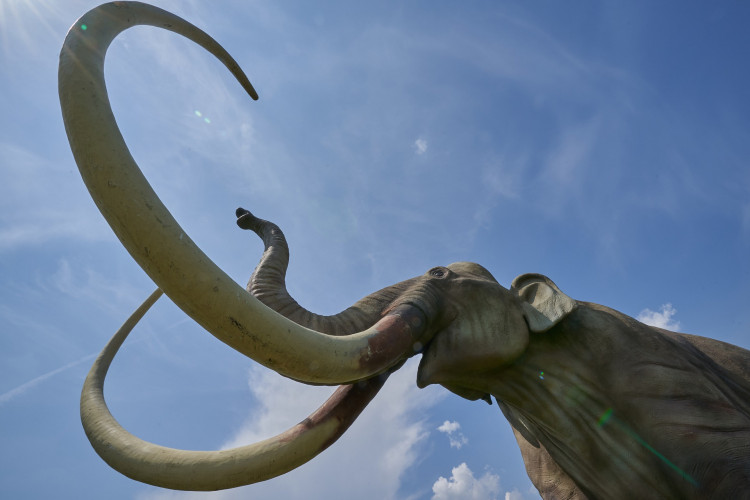Geneticists hope to resurrect the woolly mammoth, which disappeared 4,000 years ago. The efforts were given a major boost on Monday when a $15 million investment was announced.
Colossal, a new company founded in collaboration with a Harvard geneticist, claims that its species "de-extinction" effort has the potential to serve as the foundation for a working model for restoring damaged or lost ecosystems, thereby slowing or even halting the effects of climate change.
"Never before has humanity been able to harness the power of this technology to rebuild ecosystems, heal our Earth and preserve its future through the repopulation of extinct animals," Colossal chief executive Ben Lamm said in a statement.
Woolly mammoths occupied most of the Arctic, coexisting alongside early humans who hunted the cold-resistant herbivores for food and fashioned tools from their tusks and bones.
Around 4,000 years ago, the animals went extinct. Scientists have been collecting bits and pieces of mammoth tusks, bones, teeth, and hair for decades in the hopes of extracting and sequencing the mammoth's DNA.
Proponents argue that resurrecting the woolly mammoth in a modified form would aid in the restoration of the Arctic tundra habitat, prevent climate change, and protect the endangered Asian elephant, to which the woolly mammoth is most closely related.
However, it's an ambitious project that raises ethical concerns.
The goal is not to clone a mammoth because the DNA extracted from woolly mammoths that are still frozen in permafrost is far too fragmented and degraded, but to create a living, walking elephant-mammoth hybrid that is visually indistinguishable from its extinct forerunner through genetic engineering.
According to Lam, one of the project's goals is to have the first calves within the next four to six years.
The vast migratory patterns of the woolly mammoth were considered vital to sustaining the Arctic region's environmental health.
According to Colossal, reintroducing the beasts has the potential to revitalize the Arctic grasslands, a vast region with significant climate change-fighting properties such as carbon sequestration and methane suppression.
The bioscience firm was funded in part by a $15 million seed round from investors, and its advisers include bioethics and genomics experts, according to its website.






